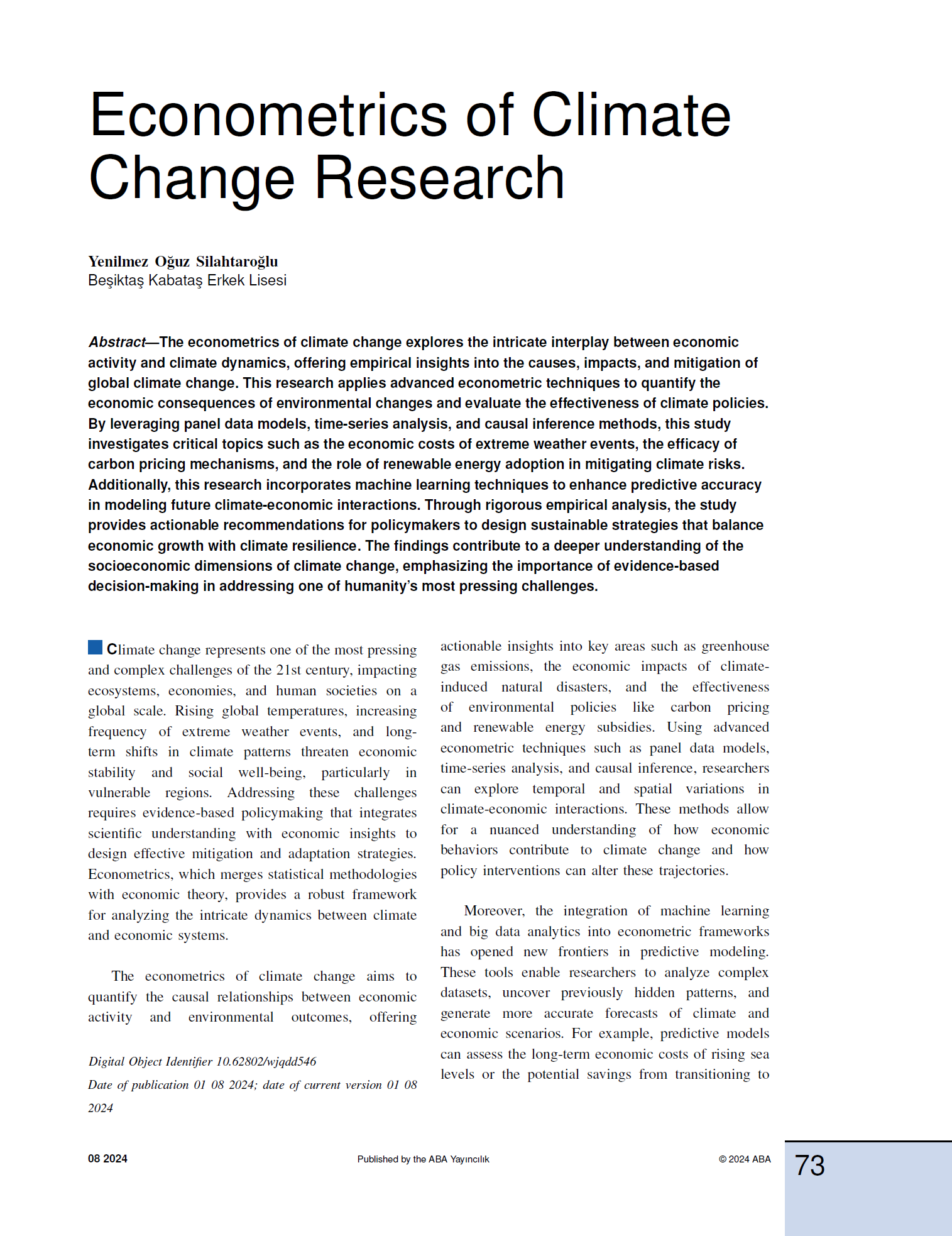Econometrics of Climate Change Research
DOI:
https://doi.org/10.62802/9gqdge41Keywords:
Econometrics, climate change, environmental economics, renewable energy, panel data, causal inference, extreme weather, carbon pricing, sustainability, policy evaluationAbstract
The econometrics of climate change explores the intricate interplay between economic activity and climate dynamics, offering empirical insights into the causes, impacts, and mitigation of global climate change. This research applies advanced econometric techniques to quantify the economic consequences of environmental changes and evaluate the effectiveness of climate policies. By leveraging panel data models, time-series analysis, and causal inference methods, this study investigates critical topics such as the economic costs of extreme weather events, the efficacy of carbon pricing mechanisms, and the role of renewable energy adoption in mitigating climate risks. Additionally, this research incorporates machine learning techniques to enhance predictive accuracy in modeling future climate-economic interactions. Through rigorous empirical analysis, the study provides actionable recommendations for policymakers to design sustainable strategies that balance economic growth with climate resilience. The findings contribute to a deeper understanding of the socioeconomic dimensions of climate change, emphasizing the importance of evidence-based decision-making in addressing one of humanity’s most pressing challenges.
References
Bekun, F. V., & Ozturk, I. (2024). Economic globalization and ecological impact in emerging economies in the post‐COP21 agreement: A panel econometrics approach. In Natural Resources Forum. Oxford, UK: Blackwell Publishing Ltd.
Change, C., & Delinquency, M. Econometrics & Management Science Quantitative Finance.
Demirdogen, A., Karapinar, B., & Özertan, G. (2024). The impact of climate change on wheat in Turkey. Regional Environmental Change, 24(1), 20.
Donovan, P. (2024). Visualizing Causal Hypotheses in Environmental Econometrics. Review of Environmental Economics and Policy, 18(2), 331-342.
Jiao, X., Pretis, F., & Schwarz, M. (2024). Testing for coefficient distortion due to outliers with an application to the economic impacts of climate change. Journal of Econometrics, 239(1), 105547.
Kachooei, E. A., & Mehrabanpour, M. (2024). Spatial Econometrics Based on Kronecker Multiplication. EIRP Proceedings, 19(1), 191-204.
Kristjanpoller, W. (2024). A hybrid econometrics and machine learning based modeling of realized volatility of natural gas. Financial Innovation, 10(1), 45.
Rising, J. A., Hussain, A., Schwarzwald, K., & Trisovic, A. (2024). A practical guide to climate econometrics: Navigating key decision points in weather and climate data analysis. Journal of Open Source Education, 7(75), 90.
Suwandaru, A., Sudiyono, W., Shawdari, A., & Fristin, Y. (2024). Understanding the economic drivers of climate change in Southeast Asia: an econometric analysis. Economies, 12(8), 200.
Tan, J., Su, X., & Wang, R. (2024). Spatiotemporal Evolution of Urban Land Green Utilization Efficiency and Driving Factors: An Empirical Study Based on Spatial Econometrics. Land, 13(8), 1272.









